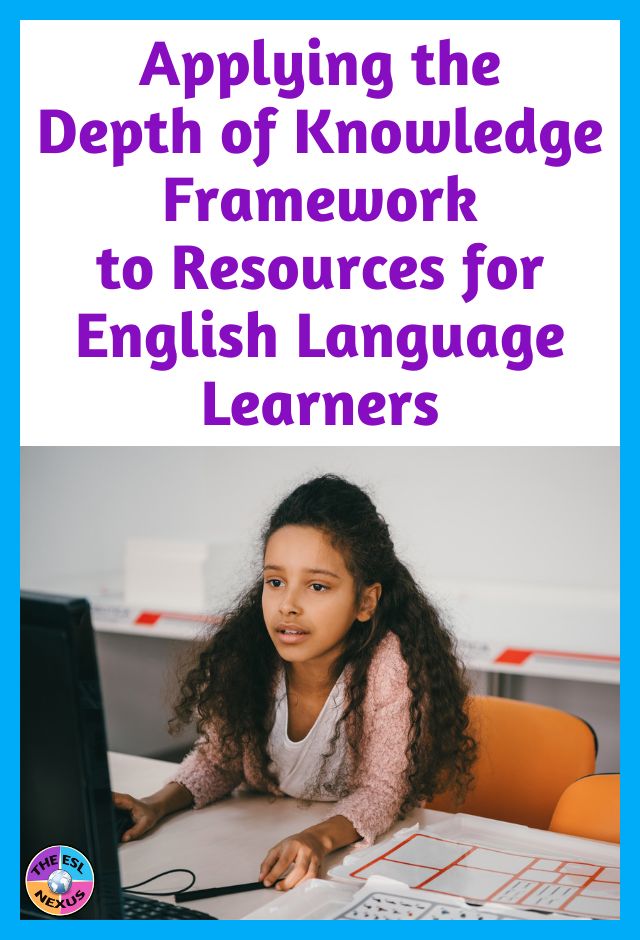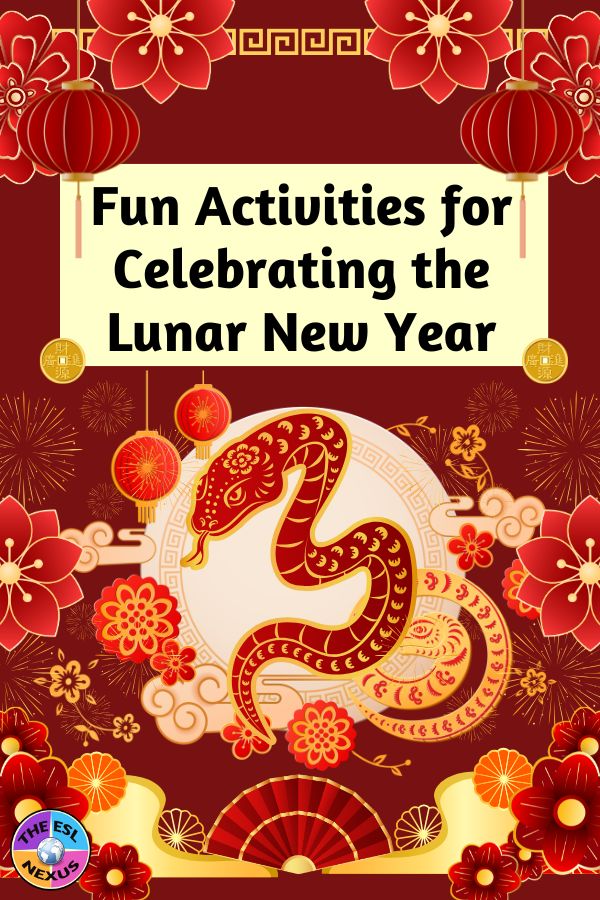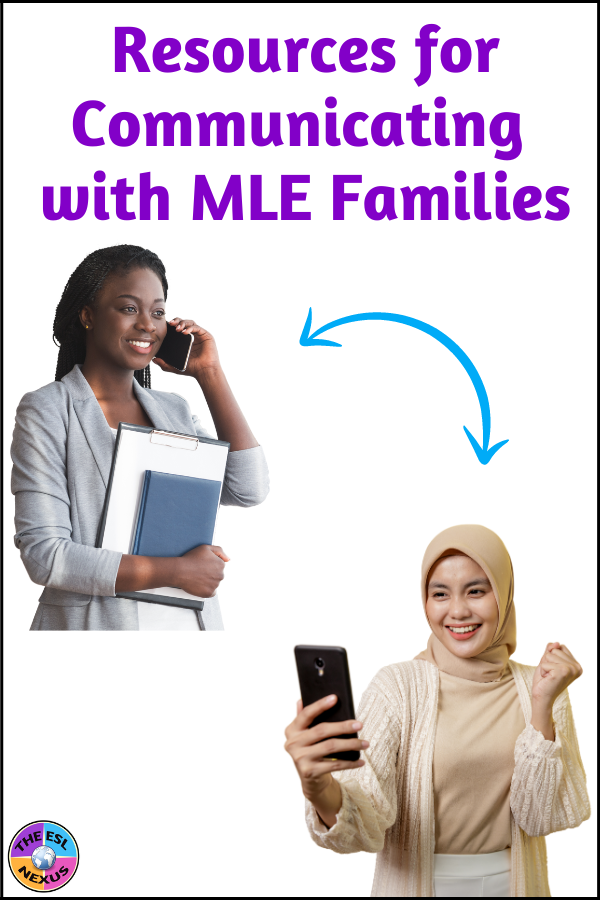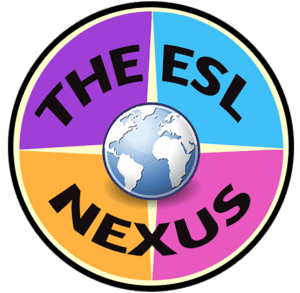What is DoK? That’s what I asked myself when a review of one of my TpT resources referred to it. There are so many acronyms in education and this was a new one to me. A quick search online revealed it stands for “Depth of Knowledge.” Intrigued, I explored some more.
 |
| Find out how DoK can be used with ELLs; source: The ESL Nexus |
Depth of Knowledge is a framework for evaluating how rigorous a task is. It was developed by Dr. Norman Webb in 1977 in reaction to Bloom’s Taxonomy. The Depth of Knowledge framework is related to Bloom’s Taxonomy but is not a replacement for it; rather, DoK works in tandem with it.
DoK ranks an assignment according to the type of thinking required to complete it. There are 4 levels of the DoK framework, which are:
* Level 1 = Recall and Reproduction. This involves remembering information and how to do something. Another way to think of this is that it has to do with acquiring information.
* Level 2 = Skills and Concepts. This involves understanding information. Another way to think of this is that it has to do with applying knowledge that is acquired.
* Level 3 = Strategic Thinking. This involves using the information in some way to do something. Another way to think of is that it has to do with analyzing information.
* Level 4 = Extended Thinking. This involves synthesizing information. Another way to think of this is that it has to do with amplifying the information and applying it in a broader or wider way.
From my admittedly short dive into what Depth of Knowledge is all about, it seems that DoK is concerned with how deeply students must comprehend information in order to apply and transfer that knowledge to another context. It’s more to do with actually using knowledge than with the kind of knowledge being used.
The Depth of Knowledge framework can be used to determine the level of complexity of an assignment or assessment. That’s apparently what the reviewer of my TpT resource did. She said, about my Martin Luther King Day Vocabulary Boom Cards, “A must have resource for sequence of and DOK of the events of MLK Jr. Life!” Level 1 certainly applies to that resource because it asks students to match definitions to vocabulary words. I think Level 2 can also apply because a recommended extension activity is to use the target vocab words to write about Martin Luther King, Jr. Possibly Levels 3 and 4 could apply as well, depending on how the resource was used with students.
After learning about the Depth of Knowledge framework, I can see how it can be used with some of my other TpT resources. For example, the African-American History Biography Task Cards, the Famous and Important Women in American History Biography Task Cards, and Women Around the World Biography Task Cards can be used to address Levels 2 and 3.
These 3 resources, which are also available in money-saving bundles (HERE, for just the 2 resources about women, and HERE, for all 3 resources) will be on sale during TpT’s sale on Tuesday and Wednesday, February 9th and 10th. As usual, everything in my store will be 20% off and when you use the promo code FebSale21 when checking out, you’ll get and additional 5% off, for a total savings of 25%. Other stores will also be on sale and offer discounts of up to 25%.
 |
| All resources in The ESL Nexus TpT store will be on sale! |
A common issue when teaching English Language Learners is how to maintain rigor in the subject matter while simultaneously simplifying the language demands needed to access the content. The Depth of Knowledge framework seems to be a helpful way of meeting that need. As I continue to create resources, I’ll keep the DoK framework in mind.




